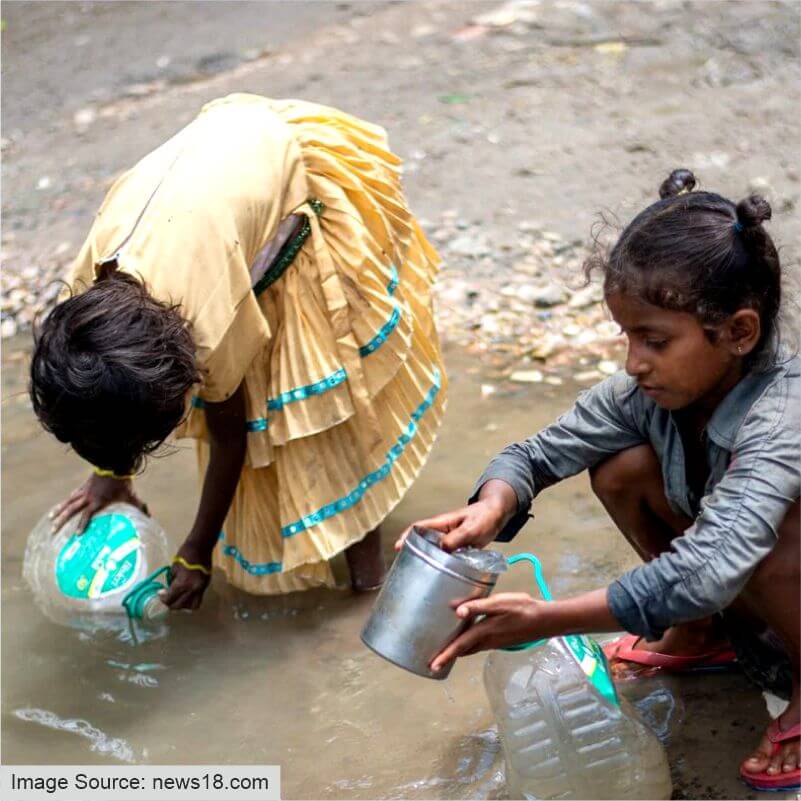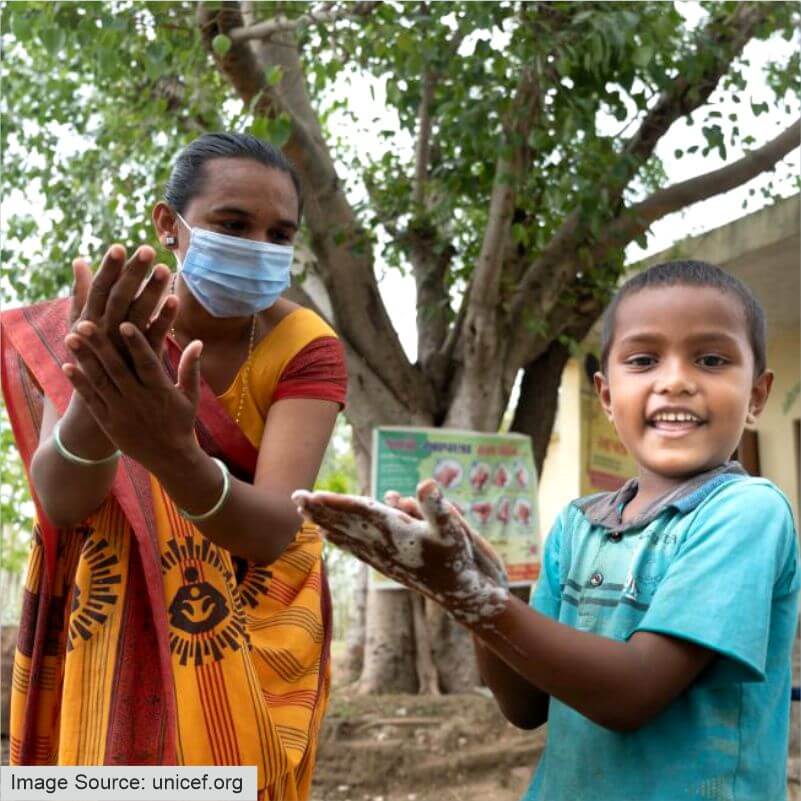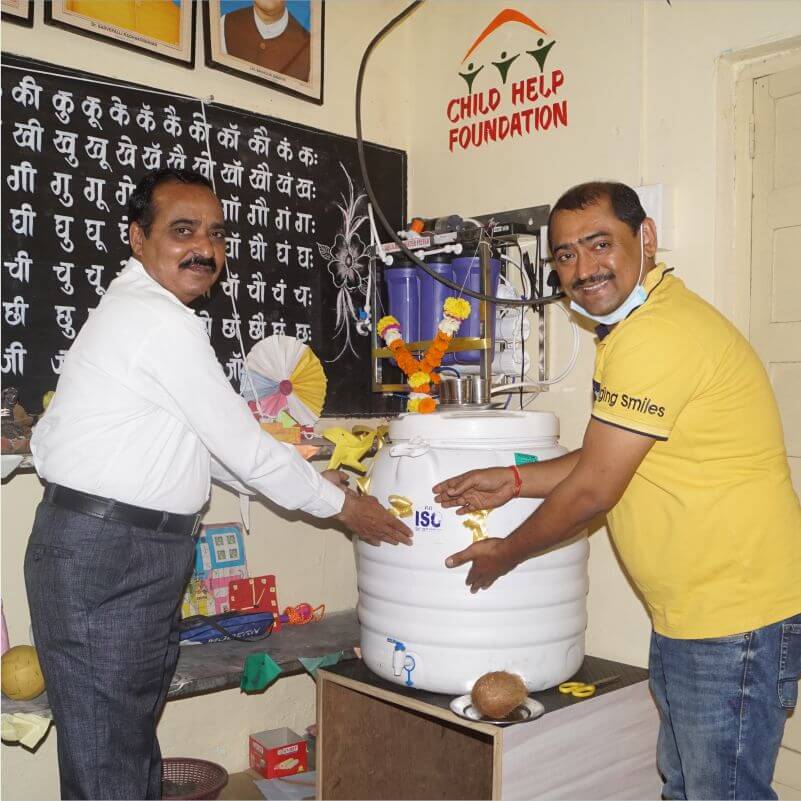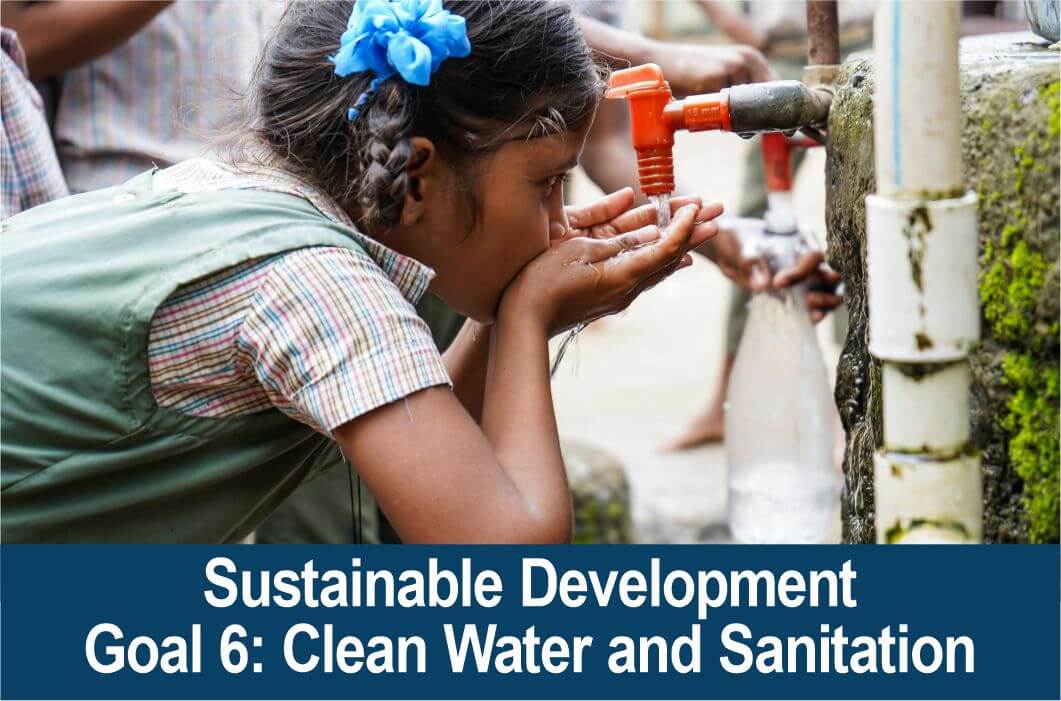The Sustainable Development Goal 6 adopted by the United Nations is “Clean Water and Sanitation”. It is to ensure that everyone has access to clean water and adequate sanitation. This objective can be accomplished in two ways: by increasing assistance for developing countries in need of water and sanitation, and by promoting public involvement in water and sanitation management. Sanitation measures are taken to maintain cleanliness and hygiene in the environment, particularly with the disposal of human waste. Access to proper sanitation is essential for preventing the spread of disease and maintaining public health.
Human health and wellbeing depend on clean water. It is important to have access to clean water which is free of contaminants and microorganisms. Contaminated water contains harmful substances, such as bacteria, viruses, parasites, and chemicals. Several aquatic diseases, including the possibly deadly typhoid, cholera, and dysentery, can also be caused by contaminated water. There are billions of people who do not have clean water supplies and they lack water as well. Clean water is also crucial for the health of the ecosystem and for the survival of plants and animal water cycle by which water commonly used through the Earth’s surface, atmosphere, and oceans water plays an important role.
Hygiene is a set of practices and habits that helps to maintain health and prevent the spread of illness and disease. Hygiene may include personal hygiene and environmental hygiene. Personal hygiene is a set of practices individuals can perform to maintain their health and well-being. Environmental hygiene refers to actions taken to keep an area clean and safe. Poor environmental hygiene, such as improper waste or sewage disposal, can cause environmental contamination with a detrimental effect on the health of both people and the environment. Hygiene is necessary for many reasons. First and foremost, good hygiene helps in slowing the spread of disease and illness. When people practice good hygiene like washing their hands frequently and keeping the environment clean, they are less likely to spread germs and infections to others. It is mainly important in schools and hospitals where people may be more prone to illness.

CHALLENGES OF SDG 6 GOALS
All the Sustainable Development Goals are strongly interrelated. For instance, progress toward SDG 6 will enhance the focus of SDG 3 i.e. on improving health and well being which will increase school attendance and reduce poverty. It is necessary to ensure access to clean water, as it requires a combination of infrastructure and education. Meanwhile, most households lack even the most basic hand-washing facilities. Only two of every five healthcare institutions have soap and water or alcohol-based sanitisers. To terminate open defecation, facilities for toilets and sanitation must be made available, and population behavior must change. Nearly one-third of the countries will need to speed up efforts to prevent open defecation (the human practice of defecating outdoors rather than in toilets).

COVID-19 has had a significant impact on water and sanitation systems all around the world. The World Health Organization states that handwashing is one of the best preventative measures one can take to stop the transmission of illnesses and germs, including the COVID-19 virus. One of the issues is producing obstacles in the supply chain and distribution system that are carried out and distribute clean water and sanitation services. Access to clean water and sanitary facilities have become more challenging for some nations, as a result, particularly in developing countries where infrastructure is lagging behind. It requires collaboration between the government, the commercial sector, and civil society to meet the SDG targets till 2030.
Many organizations are working to improve sanitation in developing countries. In addition to educating people on the value of clean water and good hygiene habits, these efforts frequently aim to provide clean water and sanitation facilities in communities that lack them. These efforts can involve building infrastructure such as toilets and lavatories and educating communities about the importance of proper sanitation practices. One of the initiatives run by the United Nations Children’s Fund (UNICEF) is Global Water, and Sanitation (WAS). It aims to improve access to clean water, and sanitation for children and families in developing countries. Another pertinent example is the Bill and Melinda Gates Foundation Reinvent the Toilet Challenge, which aims to establish innovative and affordable toilet technologies that can be utilized in areas without access to safe and sanitary facilities.
CHILD HELP FOUNDATION INITIATIVES UNDER SDG6To ensure that children have proper access to water and sanitation facilities in schools, Child Help Foundation (CHF) has taken the lead in supporting the SDG 6 goals.
Clean WaterChild Help Foundation donated water filters for 40 kids at Dongare ZP School in Saphale, Maharashtra, and 811 pupils at Murbad and Vangani Ashram Schools in Maharashtra. Children are especially vulnerable to infections brought on by polluted water. Access to safe water sources will reduce these hazards, enhance health and school attendance while also having good long-term effects on their lives.
Menstrual HygieneChild Help Foundation aims to improve the health of young women and girls. Women's and girls' menstrual hygiene management is a significant problem since it directly affects their health and quality of life. Girls reportedly find it challenging to manage their menstrual hygiene at school, which causes them to miss class. Many girls who reside in rural areas lack access to sanitary products. To cater to this need, Child Help Foundation conducted several “Menstrual Hygiene Management” (MHM) programmes and distributed sanitary napkins in schools and villages. They discussed the dos and don'ts of menstruation in educational seminars, as well as issues relating to menstruation and proper menstrual hygiene practices. Child Help Foundation has reached out to 90,234 females and distributed 3,89,984 sanitary napkins to women and teenage girls across India.

Constructing Toilets and Lavatories
Child Help Foundation has taken on a number of projects to construct toilets and lavatories for boys and girls in schools in the remote areas. The volunteers refurbished two restrooms at Hemchandra Simanta Vidyalaya in Sahapur, Odisha. The freshly remodeled restrooms made it safer for pupils to attend class and reduced the number of dropouts. This effort has benefited 80 students. Furthermore, The ancient architecture of Lady Willingdon Girls’ Secondary Government School located in Triplicane, Chennai needed timely renovations and was not possible due to lack of funds. The school management along with the Madras Mylapore Ladies Circle, reached out to Child Help Foundation for help. This school had 444 girls out of 500 students and it was important for these girls to have access to clean and safe menstrual products, amenities and facilities such as toilets, water and waste management to maintain hygiene.
During the intervision, installation of water purifiers and renovation of the washrooms became an essential part for making the school more hospitable and made things easier for the students. The task of cleaning the environment cleaner for the pupils and instructors was also taken on by Child Help Foundation. The school was made cleaner and more secure for children by the removal of waste and trash from the classrooms and hallways. Additionally, CHF has been installing restrooms and urinals for several schools located in tribal and rural areas of India.
Child Help Foundation volunteers frequently organize cleanup campaigns and have constructed toilets and WASH facilities in 15 schools, which have directly benefited 93,093 individuals. Although it is a difficult task to provide sanitary facilities on a worldwide scale, at the same time, it is the most crucial for enhancing public health and reducing the spread of diseases.
Join hands with us, Volunteer or Donate and Contribute to Sustainable Development.
“Without regard to whether someone is wealthy or poor, everybody should have a chance at clean air and clean water”.
-Barack Obama
